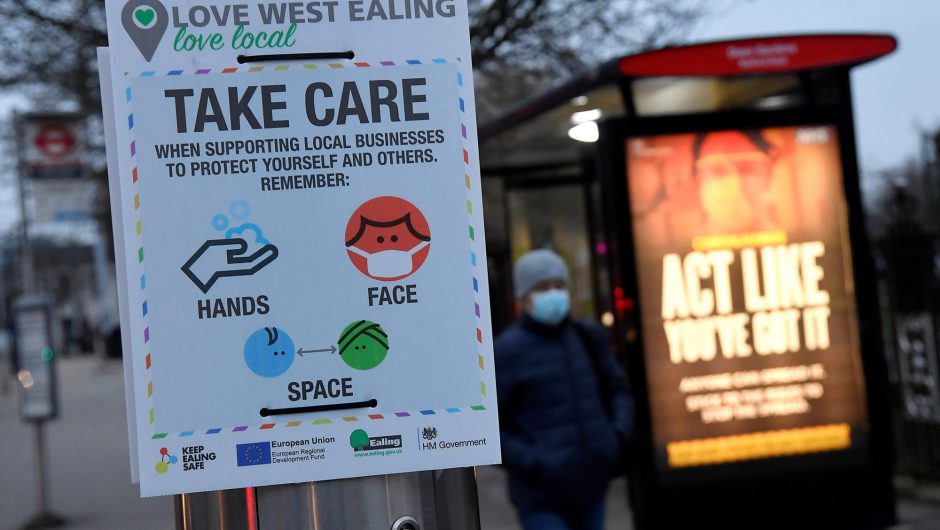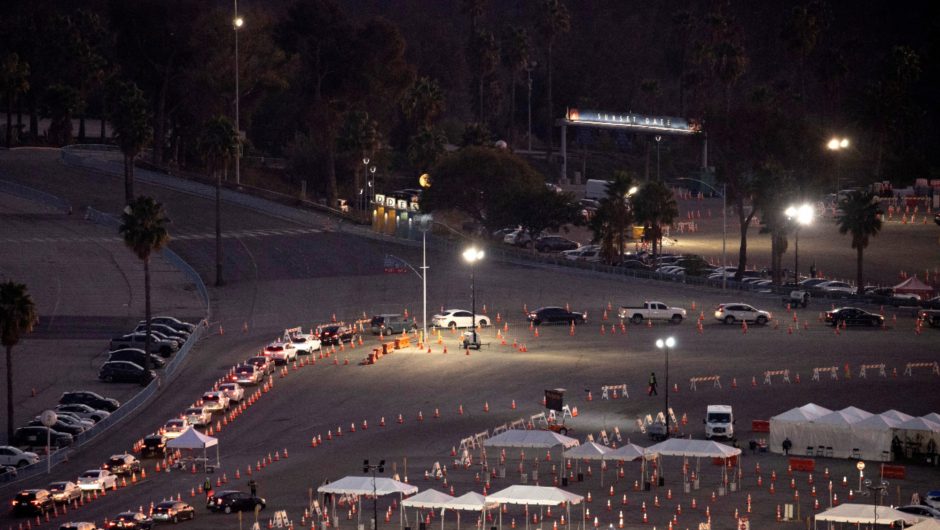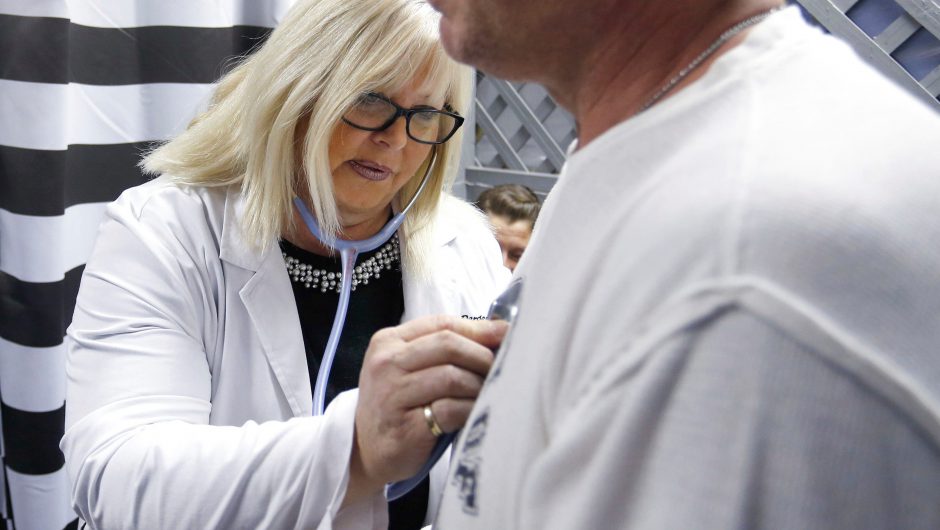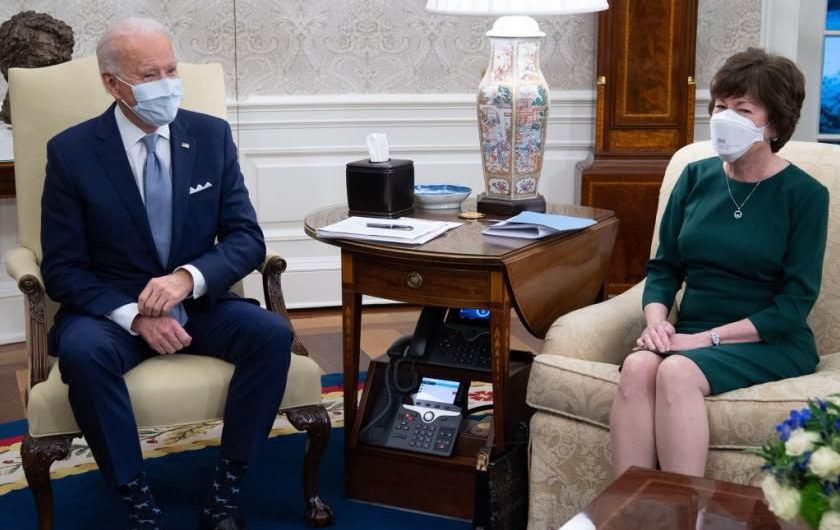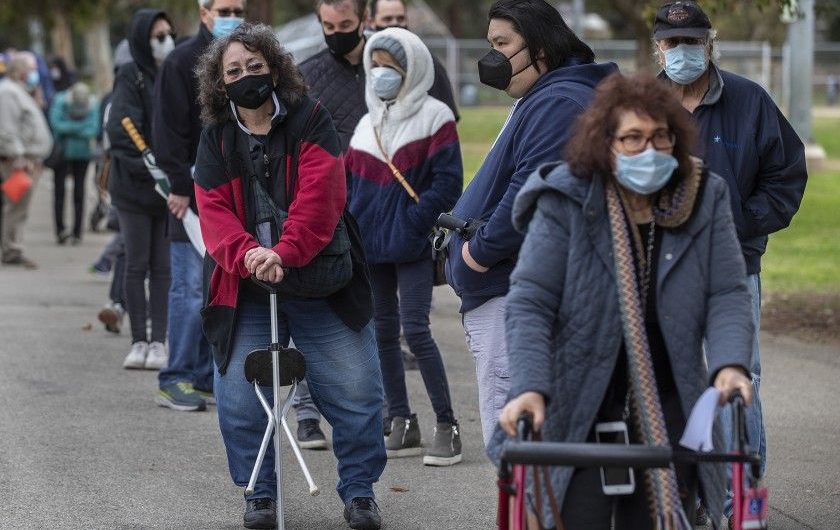[ad_1]
The exterior of the Supreme Court building in Washington, D.C. (AFP / Getty Images)
The Supreme Court on Tuesday turned down an appeal from Trump administration lawyers who sought to preemptively block the release of any inmates from an Ohio prison who were at high risk for COVID-19.
Over dissents from three conservatives, the court said it would not intervene for now.
But the court left the door open for the administration to appeal again if and when the federal judge presiding over the case decides to require the release of certain inmates.
Justices Clarence Thomas, Samuel A. Alito Jr. and Neil M. Gorsuch said they voted to grant the administration’s appeal.
A federal judge in Cleveland had ordered the warden of a low-security prison to consider sending home, releasing or transferring some of the 837 inmates who were over age 65 or had medical conditions that put them at high risk.
Last week, Solicitor Gen. Noel Francisco urged the justices to intervene in the Ohio prison case, Williams vs. Wilson. He argued that the Prison Litigation Reform Act of 1995 curbed the power of federal judges to rule on disputes over prison conditions.
“The government is currently facing numerous suits challenging conditions of confinement in federal prisons across the nation,” he said, contending the prisoners’ lawyers are seeking to require the wholesale release of inmates from low-security prisons by imposing “a constitutional six-feet-at-all-times rule” for social distancing.
However, lawyers for the American Civil Liberties Union said it would be “a tremendous mistake” to intervene.
“We commend the court for choosing to reaffirm the rights of the people incarcerated at Elkton prison, for whom a prison sentence must not become a death sentence,” David Cole, the ACLU’s legal director, said in response to Tuesday’s order. “This is an extraordinary moment, and the lives of 2.3 million incarcerated people around the country are at serious risk from COVID-19. We must see more brave action from courts around the country to protect the lives of incarcerated people, staff who work in these facilities, and the communities they return home to. History will judge us based on how swiftly and boldly we act.”
Story continues
The solicitor general’s emergency appeal was filed with Justice Sonia Sotomayor, who oversees the 6th Circuit Court based in Ohio. Tuesday’s brief order cited the “procedural posture” of the case as the main reason for denying the appeal.
The Elkton Federal Correctional Institution in northeast Ohio has been hard hit by the coronavirus outbreak. By early May, nine inmates had died, and one in four of those tested were positive.
A lawsuit filed on behalf of four inmates alleged that the conditions were inhumane and unconstitutional, with 2,500 inmates housed in cramped dormitory-style facilities, and crowded together when they slept, ate or bathed.
In response, U.S. District Judge James S. Gwin on April 22 ordered the prison to evaluate its prison population and identify those who were at high risk because they were 65 or older or had medical conditions like asthma or a heart ailment that put them in danger if they contracted the virus.
The prison subsequently said 837 inmates were in those categories. But officials later said only five of the inmates were suitable candidates to be confined at home or released. The lawyers who brought the suit expressed surprise, given that Atty. Gen. William Barr had told the federal Bureau of Prisons in late March to consider early release or home confinement in response to the virus.
Frustrated, the judge issued a new order May 19 telling prison officials to send home or release the high-risk inmates or transfer them to another prison, or explain why they did not do so in each case. He said he wanted all the inmates to be reevaluated by Tuesday.
In Tuesday’s order, the justices noted the government appealed the April 22 order, but not the extra measures adopted May 19. For that reason, the court said it would allow the May 19 order to remain in effect, but that the Trump administration could seek another stay “if circumstances warrant.” That might include, for example, an order from the judge requiring the release of a significant number of inmates.
[ad_2]
Source link


